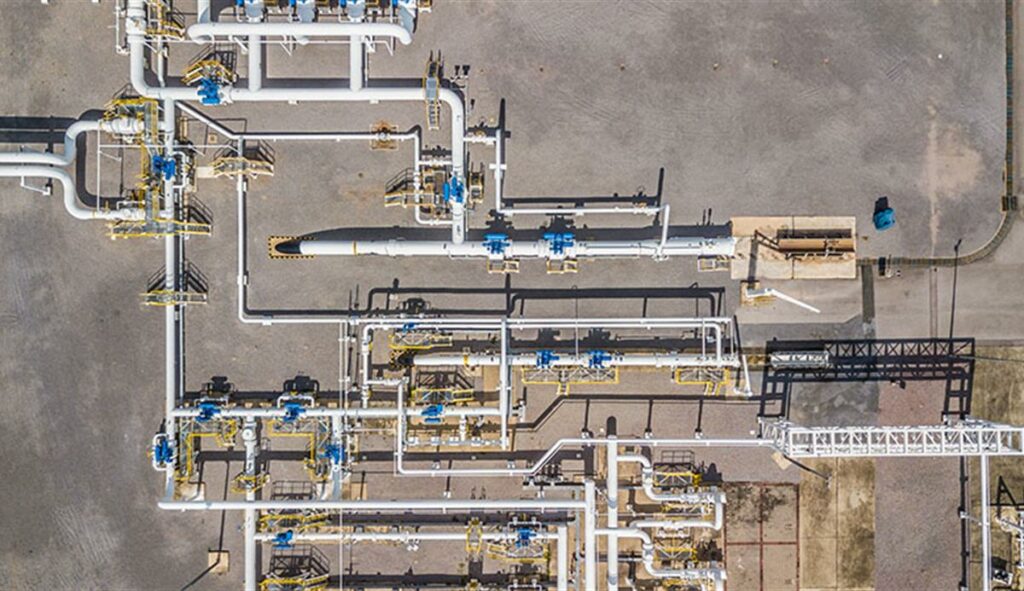The foreign affairs council decision on Monday to adopt the 14th package of sanctions against Russia, mainly in the trade with LNG, was welcomed by the European Commission. The adoption coincided with a new report by the European Court of Auditors on leakages in the EU’s gas supplies and missing solidarity between member states.
The new package responds to the needs and findings on the ground, and tackles enforcement issues, as the Russian aggression against Ukraine continues. The EU remains determined to keep acting to further reduce Russia's sources of revenue and capacity to wage war. The measures send a clear and strong signal of EU unity and of our support to Ukraine and its people, according to the Commission.
Liquefied natural gas (LNG) has until now been exempted from sanctions. The package contains new energy-related measures targeting LNG, and measures targeting vessels which support Russia's war. As regards LNG, the package prohibits all future investments in, and exports to, LNG projects under construction in Russia.
It will also prohibit, after a transition period of 9 months, the use of EU ports for the transshipment of Russian LNG. Moreover, the package prohibits the import of Russian LNG into specific terminals which are not connected to the EU gas pipeline network.
A Commission spokesperson clarified that the new measures are directed against the transshipment of Russian LNG via EU ports to third countries. The ban will increase the costs for Russia to transport the LNG and consequently reduce is revenues from this business to finance its war. A transition period is common for new measures and, in this case, aim at ensuring the stability of the global LNG market.
For the first time, the EU has adopted a measure targeting specific vessels contributing to Russia's warfare against Ukraine, which are subject to a port access ban and ban on provision of services. These vessels can be designated for a broad array of reasons such as their support through the transport of military equipment for Russia, the transport of stolen Ukrainian grain and support in the development of Russia's energy sector.
Moreover, the package introduces new listings targeting individuals and entities responsible for actions undermining or threatening the territorial integrity, sovereignty and independence of Ukraine. A total of 116 additional listings of 69 individuals and 47 entities are subject to asset freezes, and – in the case of individuals – also to travel bans.
The EU has also adjusted its strategies against circumvention of sanctions. To limit Russia's ability to access restricted goods and technology from EU companies or their customers, the package contains measures meant to boost private sector compliance, support enforcement by national competent authorities, and hamper sanctions circumvention. This has been a problem until now.
Auditors’ warnings
Indirectly linked to EU’s sanctions against the import of Russian fossil fuels, and its measures to reduce and do away with its dependence on them, is the question if EU is prepared for a new gas crisis. According to a new special audit report published yesterday, significant challenges are still needed to be addressed if the EU is to be fully prepared for a crisis.
The European Court of Auditors write that although the EU did adopt a number of emergency measures to counteract Russia’s weaponisation of gas, the benefits of EU action have not always been clear. On the face of it the EU was successful, significantly phasing out imports of Russian that accounted for 45 % of all its gas imports in 2021. After a jump in gas prices, the gas price reached pre-war levels.
“The crisis triggered by Russia’s full-scale invasion of Ukraine in 2022 tested the EU’s resilience to a sudden change in the gas supply. Although prices experienced a steep increase with significant costs for families and business, we were fortunate not to experience a major gas shortage”, said João Leão, the the Portuguese ECA member responsible for the audit and an economics professor.
However, he cautioned that “Given the EU’s dependence on foreign gas, it can never be complacent about its security of supply. And consumers do not have any affordability guarantees in the event of a major future shortage.”
Examining the different measures taken by the EU to diversify its imports of LNG, save and store natural gas during the winter season and stabilize prices, the auditors concluded that there was no evidence to determine whether the impact was due to the measures alone or also to external factors (e.g. a warm winter).
Asked about EU’s sanctions on LNG, João Leão replied that it was outside the scope of the audit. “Each member state is free to determine its energy mix and sources of gas. The security of supply legislation mandates that member states analyse the risks linked to these supply choices.”
Solidarity is a key principle underpinning EU energy policy. However, the EU auditors noticed the failure by the member states to sign bilateral solidarity agreements on gas despite the common EU need to sanction Russia and reduce its dependence on Russian imports.
In 2018, the Commission estimated that 40 agreements were necessary but as none had been signed by 2020, the Commission opened infringement proceedings against 25 member states for failure to comply with the solidarity provisions. Eight agreements have been concluded up to January 2024. The provisions are intended for scenarios of extreme shortages, which no member state faced during the recent crisis.
While the impact of each measure taken during the gas crisis can be difficult to evaluate, they should be assessed as a whole, complementing each other, according to the Commission. It encouraged the member states to weather the crisis in solidarity and solidarity has now become a default measure in the absence of bilateral solidarity agreements.
M. Apelblat
The Brussels Times

